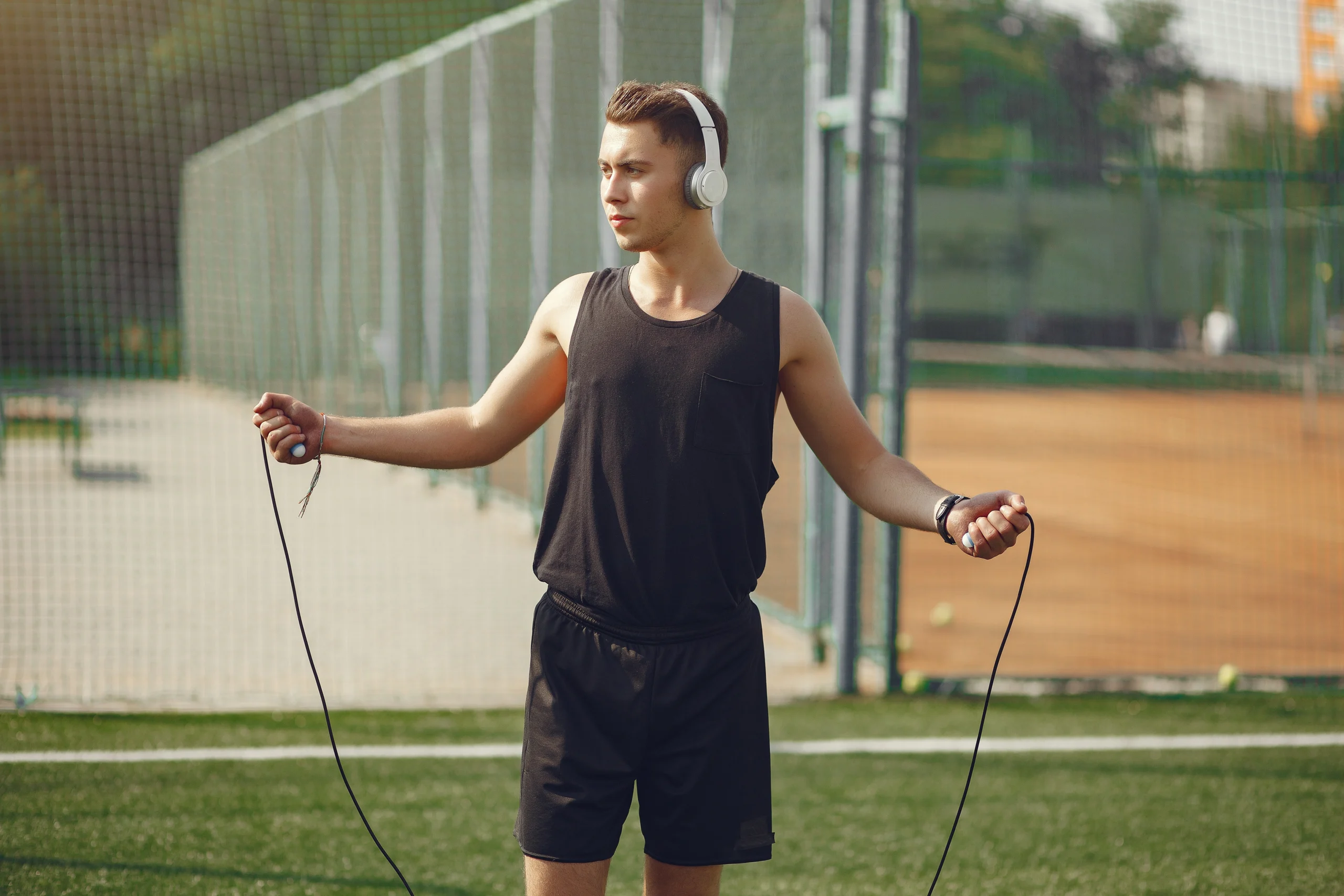Introduction
Being physically fit is only half the battle in sports. A lot of athletes’ secret tools for peak performance and a competitive edge are how well they prepare their minds. Understanding how to be successful mentally could change the game for players, teachers, and sports fans. Some mental preparation strategies used in sports psychology may help people be more mentally tough and creative.
The Power of Mental Toughness
Sports performance requires mental toughness. Under pressure, it demands resilience, attentiveness, and serenity. This means athletes must stay calm under pressure.
Practice under pressure toughens the mind. Training in high-stress circumstances helps athletes stay cool when it matters. Mental training helps sportsmen develop.
Mental resilience is built via self-talk. Positive thinking may increase athletes’ confidence. By repeating “I can handle this” or “I am prepared,” athletes may train their brains to focus on achievement.
Visualization Techniques for Success
Visualization helps athletes perform better and reach their objectives. By visualizing success, athletes may psychologically prepare for competition and improve their chances.
For successful visualization, use vivid images. Athletes should imagine their performance, from equipment feel to audience clamor. Mental rehearsal develops brain connections, increasing the likelihood of goal achievement in real life.
Visualization requires consistency. Regularly practicing mental images may boost an athlete’s confidence and preparedness. Visualization is about believing in success, not simply seeing it.
Managing Stress and Anxiety
Anxiety can derail even the finest athletes. These emotions must be managed for focus and performance. Deep breathing and muscle relaxation may assist athletes to flow.
Simple breathing exercises work. Breathing deeply through the nose, holding for a few seconds, and exhaling slowly may benefit athletes. This method relaxes heart rate.
Progressive muscular relaxation contracts and relaxes muscles. This soothes the body and recognizes tension, helping athletes manage stress before it worsens.
Goal Setting and Achievement
One of the best mental preparation strategies is to set specific, attainable objectives. Goals guide and motivate athletes to prioritize. Short-term objectives foster long-term success.
Goal-setting requires clarity and precision. Instead of “get better,” athletes should establish precise objectives like “improve my sprint time by 0.5 seconds.” With this accuracy, athletes may monitor their development and alter their training.
Small wins should also be celebrated. Recognizing even little accomplishments motivates and encourages growth. Positive reinforcement keeps athletes motivated.
Building Confidence Through Preparation
Athletic performance requires confidence. The conviction in one’s skills drives athletes to push their limitations and take on new challenges. Positive thinking and preparedness build confidence.
Plan to gain confidence. When they’ve trained hard, athletes approach tournaments confidently. This preparation lets them concentrate on their performance without uncertainties or interruptions.
Positive feedback from coaches and teammates improves confidence. Encouragement and constructive remarks boost an athlete’s confidence and provide a supportive atmosphere.
Developing a Winning Mindset
Winners are optimistic, determined, and prepared to learn from failures. Winning athletes see setbacks as temporary development opportunities.
Developing a development mindset means seeing problems as learning opportunities. Accepting failures helps athletes remain motivated and conquer hurdles. This thinking adjustment builds flexibility and resilience.
Athletes should document their accomplishments and lessons to foster a winning attitude. Reflecting on previous triumphs and struggles gives perspective and encourages progress.
The Role of Routine in Mental Preparation
Creating a pre-performance ritual improves mental preparation. Routines calm athletes before events by providing familiarity and predictability.
A well-structured routine may include warm-ups, visualization, and positive self-talk. Athletes concentrate and perform well by following the same routine before each event.
Customizing routines to individual tastes is crucial. What works for one athlete may not for another. Try several things to see what prepares athletes for top performance.
Case Studies: Athletes Who Harnessed Mental Strategies
Using mental preparation strategies, several athletes have achieved greatness. To prepare for his record-breaking Olympic performances, Michael Phelps employed visualization methods to practice every potential situation.
In her preparation, tennis great Serena Williams stresses mental toughness. Her resilience and commitment on court have helped her win Grand Slams.
These case studies show how mental preparation strategies affect performance. By using comparable methods, athletes may reach their greatest potential and excel.
Overcoming Mental Blocks
Mental blockages may hamper an athlete’s performance. These obstacles are generally caused by fear, self-doubt, or failure. It takes self-awareness, patience, and tenacity to overcome mental blockages.
Overcoming a mental barrier starts with identifying its cause. Athletes should examine their thoughts and actions to uncover self-limiting triggers.
Sports psychologists and mental coaches may help overcome mental limitations. These specialists help athletes overcome their concerns and build confidence with tailored advice.
The Importance of Rest and Recovery
Rest and rehabilitation are essential to mental preparedness. Sleep and rest refresh the mind, increasing attention and decision-making.
Mental rehabilitation benefits from sleep. Brains synthesize information, consolidate memories, and repair neural connections during deep sleep. Sleep improves cognitive function and response speed in athletes.
Daily relaxation practices like meditation or mindfulness aid mental rehabilitation. These techniques quiet the mind, decrease stress, and boost well-being, improving mental fitness.
Nutrition’s Role in Mental Performance
Nutrition is very important for an athlete’s health and mental success. A healthy, well-balanced diet full of important nutrients feeds the mind and the body. This helps players stay focused, energetic, and strong during training and competition.
The Impact of Hydration on Mental Clarity
Staying wet is very important for brain health. Dehydration can make it harder to focus, make you tired, and make it harder to make decisions. Athletes need to drink enough water to keep their minds sharp, especially when they are working hard.
Visualization Techniques for Success
A lot of great athletes use visualization as a strong way to train their minds. Mentally practicing their skills can help players feel more confident and less stressed. As you do this method, picture yourself successfully finishing actions. This can help strengthen muscle memory and make you better at doing them in real life.
The Role of Mindfulness in Athletic Excellence
Mindfulness techniques, like deep breathing and meditation, help players stay in the present and concentrate. Players can focus better and make better decisions during events by teaching their minds to block out distractions. By practicing awareness, you can improve your skills and have a better time playing sports.
Conclusion
Mental preparation is key to athletic achievement. Athletes may maximize performance by learning mental toughness, visualization, stress management, and goal planning. These methods help players, coaches, and sports fans learn sports psychology.
For athletes, brilliance requires physical training and a tenacious, concentrated attitude. These mental preparation strategies may help athletes improve, overcome challenges, and accomplish their goals.
Ready to master mental preparation? Explore more resources and talk to professionals to reach optimal performance.
tools





